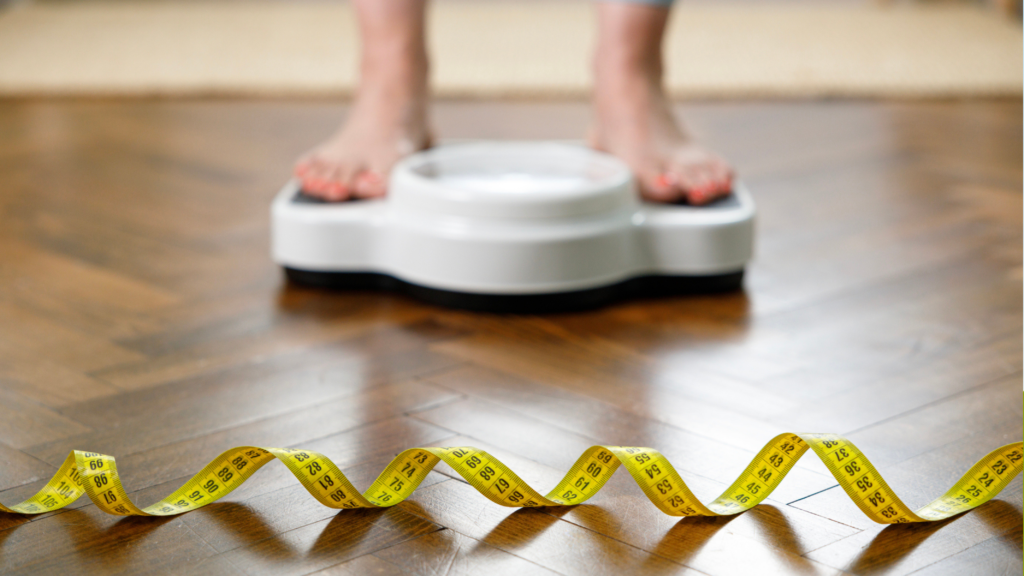What Is Metabolic Age?
Metabolic age refers to the biological age of your body, which may differ from your chronological age. It provides a deeper look into how your body functions, particularly in terms of oxygen utilization, cardiovascular fitness, and overall metabolic health. While chronological age is based on the passage of time, metabolic age reflects how efficiently your body operates at the cellular level.
One of the most important factors that influence metabolic age is VO2 Max, the maximum amount of oxygen your body can utilize during intense exercise. VO2 Max is widely recognized as the best indicator of cardiovascular fitness, and higher VO2 Max levels correlate with lower biological age. Studies have shown that individuals with higher VO2 Max levels tend to have better health outcomes and lower risks for age-related diseases.
Other factors influencing metabolic age include mitochondrial function, fat and carbohydrate metabolism, and overall physical fitness.
Why Metabolic Age Matters More Than Your Birthday
While your chronological age tells you how many years you’ve been alive, metabolic age tells you how well your body is performing. A younger metabolic age suggests that your body’s systems are operating efficiently, allowing you to recover faster, burn fat more effectively, and maintain good cardiovascular health. On the other hand, a higher metabolic age may indicate a decline in some of these functions, which could lead to increased risk of diseases such as heart disease, diabetes, and age-related illnesses.
Several biological factors contribute to a higher or lower metabolic age:
- Mitochondrial Efficiency: Mitochondria are the powerhouses of our cells, and their function declines as we age. Optimizing mitochondrial health through exercise, diet, and recovery can reduce metabolic age.
- VO2 Max: As mentioned, VO2 Max is a key marker of metabolic age. Aerobic fitness, measured by VO2 Max, is directly related to longevity and a reduced risk of chronic conditions. Training to improve VO2 Max can effectively lower metabolic age.
- Fat and Carbohydrate Metabolism: Efficient fat and carb utilization ensures your body can produce energy efficiently, preventing the accumulation of excess fat, which can lead to age-related diseases.
PNOĒ: Measuring and Optimizing Your Metabolic Age
At PNOĒ, metabolic age is determined by assessing key biomarkers that reflect how well your body is functioning. These include:
- VO2 Max: The most important indicator of your cardiovascular fitness, and a direct predictor of your biological age.
- Resting Metabolic Rate (RMR): Although not the sole factor in metabolic age, RMR can give insights into how your body burns calories at rest. Lower RMR could be an indication of reduced metabolic efficiency.
- Fat and Carbohydrate Oxidation: PNOĒ measures how efficiently your body uses fat and carbohydrates for fuel. This plays a key role in maintaining a healthy metabolic rate and reducing age-related metabolic decline.
- Cardiorespiratory Efficiency: This is the ability of your body to deliver oxygen to muscles and tissues. Higher efficiency suggests better cardiovascular health and a younger biological age.
- Cellular Oxygen Use: How effectively your cells utilize oxygen during exercise is another key factor in determining your metabolic age.
With this data, PNOĒ can provide a comprehensive, personalized plan to improve metabolic age, including specific recommendations for exercise, nutrition, and recovery strategies.
What Affects Metabolic Age?
Several lifestyle and physiological factors influence metabolic age, including:
- Physical Activity: Regular aerobic exercise is one of the most powerful ways to improve metabolic age. By increasing VO2 Max and enhancing mitochondrial function, exercise helps lower biological age.
- Sleep: Adequate sleep is essential for cellular repair and recovery. Poor sleep quality can lead to an increase in metabolic age due to stress, poor hormonal regulation, and impaired recovery.
- Nutrition: A nutrient-dense diet can help maintain healthy metabolic processes. Adequate intake of vitamins, minerals, and antioxidants supports mitochondrial health and reduces oxidative stress, leading to a lower metabolic age.
- Stress: Chronic stress can negatively impact metabolic function by increasing inflammation and disrupting hormonal balance. Managing stress through mindfulness practices and recovery techniques can help reduce metabolic age.
- Recovery: Proper recovery strategies, including rest days and sleep optimization, support metabolic health by allowing the body to repair and regenerate cells.
Reversing Metabolic Age: The Role of Targeted Interventions
Unlike static metrics such as BMI, metabolic age is dynamic and can change over time. With consistent effort, you can reduce your metabolic age by improving your cardiovascular health, reducing inflammation, optimizing nutrition, and enhancing overall fitness. Some interventions, particularly aerobic training that boosts VO2 Max, have been shown to significantly lower biological age markers, such as mitochondrial function and cardiovascular health.
PNOĒ’s precision metabolic insights enable individuals to track their progress and adjust their interventions as needed. Users have successfully dropped up to 10 metabolic years within just a few months of consistent, targeted effort.
RESOURCES:
VO₂ Max and Biological Age
- “Survival of the fittest: VO₂max, a key predictor of longevity?”
This review discusses how VO₂ max serves as a reliable marker for biological age and its association with longevity.
Read the full article here. - “Greater physical fitness (VO₂max) in healthy older adults associated with greater Locus Coeruleus MRI signal intensity”
This study found that higher VO₂ max levels in older adults correlate with increased brainstem activity, suggesting better cardiovascular and neural health.
Access the study on PubMed. - “VO₂ Max: A leading health indicator. Test yourself!”
This article emphasizes the importance of VO₂ max as a key indicator of cardiovascular health and longevity.
Read more on Heads Up Health.
Mitochondrial Function and Aging
- “The Mitochondrial Basis of Aging and Age-Related Disorders”
This paper explores how mitochondrial dysfunction contributes to aging and age-related diseases.
Read the full article on PubMed Central. - “Mitochondrial dysfunction and its association with age-related diseases”
This review discusses the impact of mitochondrial dysfunction on aging and its link to various age-related diseases.
Access the article on Frontiers in Physiology. - “Mitochondrial function as a potential biomarker for biological aging”
This article examines the role of mitochondrial function as a biomarker for biological aging.
Read the full text in Maturitas. - “Mitochondrial DNA variants and their impact on epigenetic and biological aging”
This study investigates how mitochondrial DNA variants influence epigenetic and biological aging.
Access the article on Nature.
Exercise, VO₂ Max, and Aging
- “Exercise capacity and biological age: A powerful relationship”
This article discusses how exercise capacity, particularly VO₂ max, is closely linked to biological age and overall health.
Read more on KnotRelease. - “How Fast Do We Age? Exercise Performance Over Time as a Predictor of Biological Age”
This study highlights the role of exercise performance in determining biological age.
Access the article on Oxford Academic. - “VO₂ Max Longevity: Boost Aerobic Fitness for a Longer, Healthier Life”
This article emphasizes the importance of maintaining aerobic fitness to reduce biological age and enhance longevity.
Read more on Novos Labs.
Integrating VO₂ Max and Mitochondrial Health
- “Mitochondria in aging and age-associated diseases”
This paper discusses the role of mitochondria in aging and their association with various age-related diseases.
Access the article on ScienceDirect.
Metabolic Health




